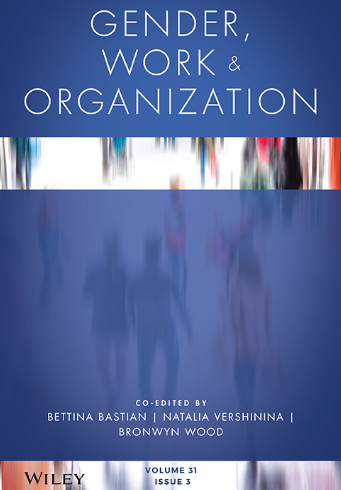How hegemonic masculinity injures migrant men: A multilevel analysis of African men in South Korea's low-wage labor market
Abstract
With the rapid influx of labor migration and accelerating rates of globalization, studies of hegemonic masculinity have become increasingly divided in representing the amount of agency marginalized men have access to in constructing alternative, more hybrid masculine ideals as they travel overseas. This paper offers a new methodological approach for studying hegemonic masculinity. Specifically, we analyze how multiple forces at the structural, interpersonal, and individual levels work together as a system of oppression. As our case study, we focus on African bachelors who have migrated to South Korea to fill the demand for 3-d (dirty, difficult, and dangerous) labor. By analyzing 30 interviews and two years of ethnographic observation of African migrants in Korea, our study demonstrates how migrant men become trapped by their desires to perform their masculine worth as reliable wage laborers, even at the cost of their physical and emotional well-being. While past studies on undocumented migrant workers in Korea have highlighted their heightened exposure to institutional violence, we shed light on how structural forces also bleed into the private spaces of everyday life, shaping the intimate relationships and personal desires of marginalized men themselves.

 求助内容:
求助内容: 应助结果提醒方式:
应助结果提醒方式:


